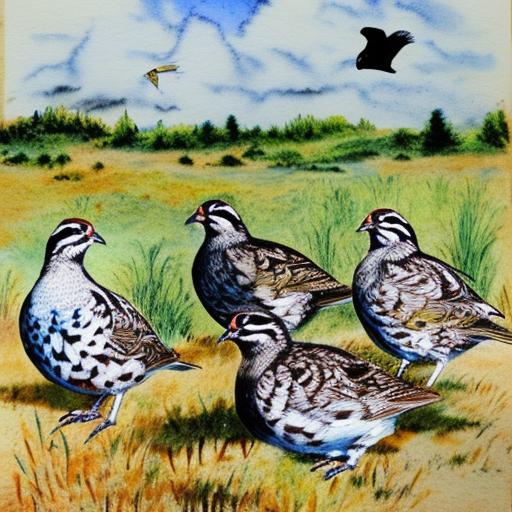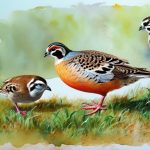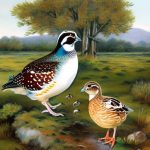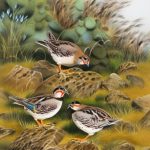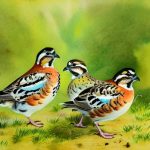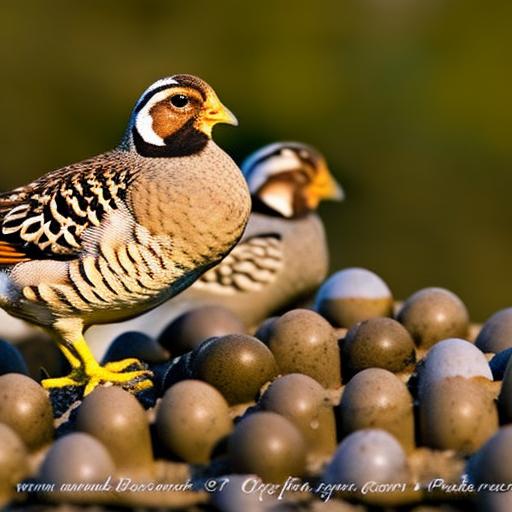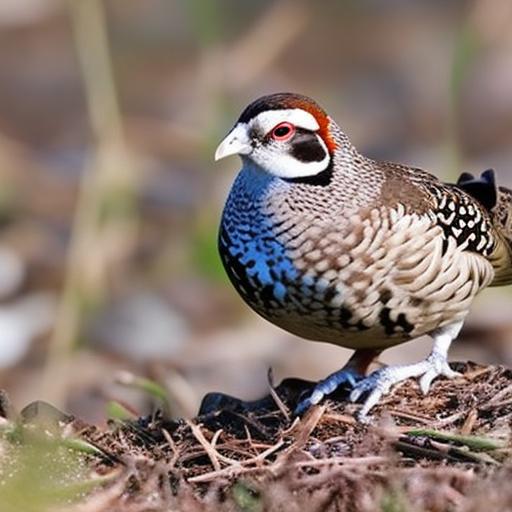Quail farming has been gaining popularity in the Pacific Northwest due to the region’s suitable climate and growing demand for quail eggs and meat. The Pacific Northwest, encompassing states like Washington, Oregon, and Idaho, provides an ideal environment for raising quail with its mild climate and abundant natural resources. Quail breeds in this region are diverse, offering a range of options for farmers and enthusiasts. From the popular Coturnix quail to the unique Bobwhite quail, the Pacific Northwest is home to a variety of quail breeds that thrive in its temperate climate. As the interest in sustainable and small-scale farming continues to grow in the region, quail breeds have become a valuable addition to many farms and homesteads. This article will explore the popular quail breeds in the Pacific Northwest, their characteristics, breeding and raising methods, as well as the care and maintenance required for successful quail farming in this region.
Key Takeaways
- Quail breeds are popular in the Pacific Northwest due to their adaptability to the region’s climate and their small size, making them ideal for small-scale farming.
- Popular quail breeds in the Pacific Northwest include the Coturnix quail, Bobwhite quail, and California quail, each with their own unique characteristics and benefits.
- Quail breeds in the Pacific Northwest are known for their hardiness, fast growth, and high egg production, making them a popular choice for both meat and egg production.
- Breeding and raising quail in the Pacific Northwest requires proper housing, feeding, and management to ensure the health and productivity of the birds.
- Quail care and maintenance in the Pacific Northwest involves providing a balanced diet, clean water, and a suitable living environment to ensure the well-being of the birds.
Popular Quail Breeds in the Pacific Northwest
The Pacific Northwest is home to several popular quail breeds that are well-suited for the region’s climate and farming conditions. One of the most commonly raised quail breeds in this region is the Coturnix quail, also known as the Japanese quail. Coturnix quail are prized for their prolific egg-laying abilities, making them a popular choice for farmers and homesteaders looking to produce quail eggs for consumption or sale. Another popular quail breed in the Pacific Northwest is the Bobwhite quail, known for its distinctive call and attractive plumage. Bobwhite quail are often raised for both their eggs and meat, and they are well-adapted to the region’s temperate climate. Additionally, the California quail, with its striking appearance and sociable nature, is another favored quail breed in the Pacific Northwest. These quail are often kept for their ornamental value as well as for hunting purposes, adding diversity to the quail farming landscape in the region.
Characteristics of Quail Breeds in the Pacific Northwest
Quail breeds in the Pacific Northwest exhibit a range of characteristics that make them well-suited for farming in this region. Coturnix quail, for example, are known for their small size, rapid growth, and high egg production. They are relatively easy to care for and can thrive in a variety of housing and feeding conditions, making them an ideal choice for beginners and experienced farmers alike. Bobwhite quail, on the other hand, are known for their adaptability to different environments and their ability to forage for food. They are also valued for their flavorful meat and are often raised for both personal consumption and commercial sale. California quail, with their striking plumage and social nature, add aesthetic value to quail farms in the Pacific Northwest. Their ability to thrive in diverse habitats makes them a popular choice for those looking to add an ornamental or hunting aspect to their quail farming endeavors.
In addition to these popular breeds, other quail varieties such as Gambel’s quail and Mountain quail can also be found in the Pacific Northwest. These breeds offer unique characteristics and traits that appeal to different farmers and enthusiasts in the region. Gambel’s quail, known for their distinctive topknot plume and desert habitat adaptation, are often sought after by those looking to add a touch of diversity to their quail farms. Mountain quail, with their elusive nature and preference for wooded habitats, provide a challenge for experienced farmers and hunters seeking a different quail-raising experience. Overall, the diverse characteristics of quail breeds in the Pacific Northwest offer a range of options for farmers and enthusiasts looking to raise these birds in this region.
Breeding and Raising Quail in the Pacific Northwest
Breeding and raising quail in the Pacific Northwest requires careful consideration of housing, feeding, and breeding practices to ensure the health and productivity of the birds. When it comes to breeding quail, providing a suitable environment with proper lighting, temperature control, and nesting areas is essential for successful reproduction. Farmers often use incubators to hatch quail eggs, as this method allows for better control over temperature and humidity levels during the incubation process. Once hatched, young quail chicks require a warm and secure brooding area with access to specialized chick feed to support their growth and development.
Raising quail in the Pacific Northwest also involves providing suitable housing that protects the birds from predators and extreme weather conditions while allowing them access to outdoor areas for foraging and exercise. Many farmers opt for enclosed aviaries or hutches that provide ample space for the birds to move around while keeping them safe from potential threats. Additionally, providing a balanced diet that includes commercial quail feed supplemented with fresh greens, grains, and protein sources is crucial for maintaining the health and productivity of the birds. By implementing proper breeding and raising practices, farmers can ensure the success of their quail farming endeavors in the Pacific Northwest.
Quail Care and Maintenance in the Pacific Northwest
Quail care and maintenance in the Pacific Northwest require attention to various aspects of the birds’ well-being, including nutrition, health monitoring, and predator protection. Providing a balanced diet that meets the nutritional needs of quail is essential for their overall health and productivity. Farmers often supplement commercial quail feed with fresh greens, grains, and protein sources to ensure that the birds receive essential nutrients for optimal growth and egg production. Additionally, access to clean water at all times is crucial for quail health, especially during hot summer months when dehydration can pose a significant risk.
Regular health monitoring is also an important aspect of quail care in the Pacific Northwest. Farmers should observe their birds daily for any signs of illness or injury and provide prompt veterinary care when needed. Preventive measures such as vaccination against common diseases can help maintain the overall health of the quail flock and minimize the risk of outbreaks. Furthermore, protecting quail from predators such as raccoons, foxes, and birds of prey is essential for their safety. Farmers often use secure enclosures with predator-proof fencing or netting to prevent unwanted intrusions and keep their quail flock safe from harm.
Quail Farming in the Pacific Northwest
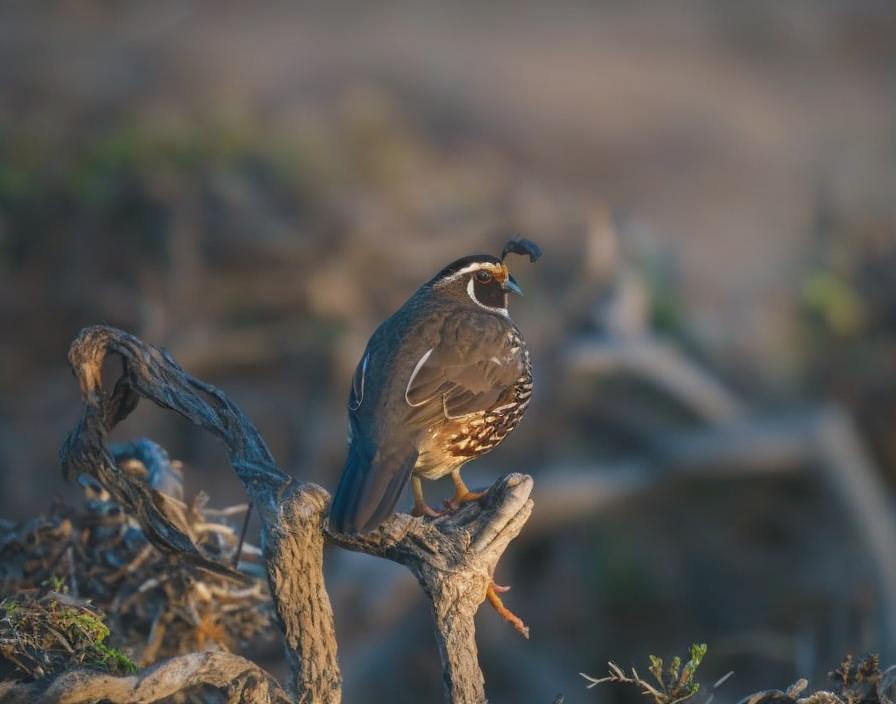
Quail farming has become an increasingly popular agricultural pursuit in the Pacific Northwest due to the region’s favorable climate and growing market demand for quail eggs and meat. Small-scale farmers and homesteaders are drawn to quail farming as a sustainable and profitable venture that requires minimal space and resources compared to traditional livestock farming. The relatively low start-up costs associated with quail farming make it an accessible option for individuals looking to enter the agricultural industry or diversify their existing farm operations.
In addition to providing a source of nutritious eggs and meat, quail farming offers other benefits such as natural pest control and soil fertilization through the birds’ foraging activities. Quail are efficient insect hunters and can help reduce pest populations in agricultural settings, making them a valuable addition to integrated pest management strategies. Their droppings also contribute to soil fertility when used as organic fertilizer, further enhancing their role in sustainable farming practices.
As consumer interest in locally sourced and ethically raised food continues to grow, quail farming in the Pacific Northwest presents an opportunity for farmers to meet this demand while contributing to the region’s agricultural diversity. By implementing sound breeding, raising, and care practices, farmers can establish successful quail farming operations that provide high-quality products to local markets while promoting sustainable land stewardship.
Conclusion and Future of Quail Breeds in the Pacific Northwest
In conclusion, quail breeds have found a niche in the agricultural landscape of the Pacific Northwest, offering farmers and enthusiasts a diverse range of options for sustainable farming practices. The popularity of quail farming in this region is driven by factors such as favorable climate conditions, growing market demand for quail products, and the birds’ ability to thrive in small-scale farming environments. As interest in sustainable agriculture continues to rise, quail breeds are likely to play an increasingly important role in meeting consumer demand for locally sourced, ethically raised food products.
The future of quail breeds in the Pacific Northwest looks promising as more farmers recognize the benefits of integrating these birds into their agricultural operations. With proper breeding, raising, care, and maintenance practices, farmers can establish successful quail farming ventures that contribute to regional food security while promoting environmental sustainability. As consumer preferences shift towards supporting local food systems and small-scale agriculture, quail breeds are poised to become an integral part of the Pacific Northwest’s agricultural heritage, offering valuable contributions to both farm productivity and ecological balance.
If you’re interested in learning more about quail breeds in the Pacific Northwest, you might also want to check out this informative article on the Producers Pride Sentinel Chicken Coop. It provides valuable insights into creating a suitable environment for raising poultry, which can be beneficial for quail as well.
FAQs
What are the common quail breeds found in the Pacific Northwest?
In the Pacific Northwest, common quail breeds include the Northern Bobwhite, California Quail, and Mountain Quail.
What are the characteristics of the Northern Bobwhite quail?
The Northern Bobwhite quail is known for its distinctive call, which sounds like “bob-white.” It has a mottled brown and white plumage and prefers open grasslands and agricultural areas.
What are the characteristics of the California Quail?
The California Quail has a striking appearance with a black throat and face outlined in white, a gray chest, and a brown back. It is commonly found in brushy areas and open woodlands.
What are the characteristics of the Mountain Quail?
The Mountain Quail has a unique appearance with a short, curved black plume on its head and a chestnut brown and gray body. It is typically found in dense brushy habitats and coniferous forests.
What are the preferred habitats for quail in the Pacific Northwest?
Quail in the Pacific Northwest prefer habitats such as grasslands, agricultural fields, brushy areas, open woodlands, and dense forests, depending on the specific breed.
Meet Walter, the feathered-friend fanatic of Florida! Nestled in the sunshine state, Walter struts through life with his feathered companions, clucking his way to happiness. With a coop that’s fancier than a five-star hotel, he’s the Don Juan of the chicken world. When he’s not teaching his hens to do the cha-cha, you’ll find him in a heated debate with his prized rooster, Sir Clucks-a-Lot. Walter’s poultry passion is no yolk; he’s the sunny-side-up guy you never knew you needed in your flock of friends!

